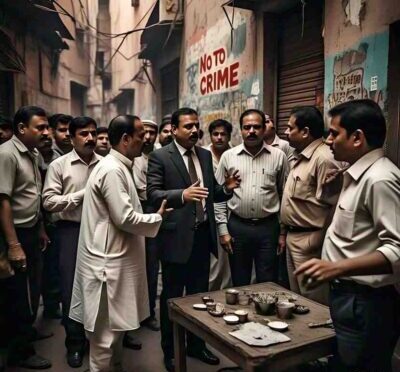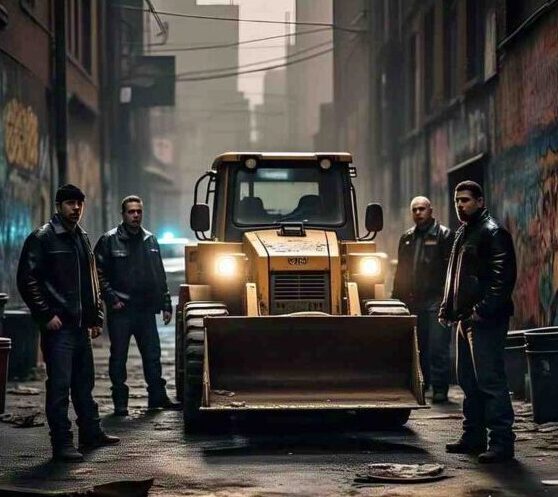The Uttar Pradesh Gangsters Act
The Gangsters and Anti-Social Activities (Prevention) Act, 1986—commonly known as the U.P. Gangsters Act—is a powerful state law designed to combat organized crime in Uttar Pradesh. If you’ve heard of headlines involving gang leaders, bulldozers, or property seizures, chances are this law played a role.
But what does it do? Who can be booked under it? And why is it controversial?
Let’s break it down.
Why Was the Act Introduced?
In the 1980s, organized crime in Uttar Pradesh was rapidly expanding. Gang wars, land mafia, political-criminal links, and contract killings were common. The regular criminal justice system was too slow and too weak to respond.
So in 1986, the state government introduced the Gangsters Act to:
- Deter and punish gang-related crimes
- Prevent habitual offenders from operating
- Speed up trials with special courts
- Allow police to seize illegally acquired property
This wasn’t meant to replace existing criminal laws—it was built to strengthen them.

Key Definitions You Should Know
To understand the Act, you need to get a few definitions right:
- Gang: A group (big or small) that uses violence or threats to gain unlawful advantages.
- Gangster: Anyone who’s part of such a gang or supports them financially, politically, or logistically.
- Anti-Social Activity: Any repeated or organized act that disturbs public order or safety.
The problem? These definitions are a bit vague, and that’s part of the controversy.
Major Provisions of the U.P. Gangsters Act
Here are some of the Act’s biggest features and powers:
1. Strong Penalties (Section 3)
- If found guilty of gang activities, punishment can range from 2 years to life imprisonment.
- Fines can go up to ₹5 lakh.
- If murder is involved, the death penalty is possible.
2. Property Seizure (Section 14)
- Authorities can attach property if they believe it was bought with money earned from crimes.
- This can happen even before a trial ends.
- This includes houses, land, vehicles, and anything linked to gang operations.
3. Preventive Detention
- Police can detain suspects if they believe the person is likely to commit more crimes.
- No conviction is needed to make the arrest.
- This is where civil rights activists raise concerns.
4. Special Courts
- Cases under this law are tried in specially designated courts.
- This helps in avoiding delays and ensures quick action against dangerous individuals.
5. Bail is Very Hard to Get
- Getting bail under the Gangsters Act is far tougher than in regular cases.
- Courts are cautious and often require strong proof that the accused won’t commit further crimes.
How the Law Is Being Used in 2025
In recent years, especially since 2020, the U.P. government has used this Act aggressively against:
- Real estate mafias
- Illegal liquor and mining cartels
- Gangsters with political influence
- Even social media influencers are accused of glorifying crime
Officials often use bulldozers to demolish property belonging to accused individuals. Though this isn’t part of the Act, it’s become a common enforcement strategy.
The Big Criticisms
No law is perfect, and the Gangsters Act has its fair share of critics.
1. Misuse Against Innocents
There are cases where people with minor or unrelated criminal records were booked as “gangsters.” Once labeled, it’s very hard to undo.
2. Vague Definitions
What exactly qualifies as a “gang” or “anti-social activity”? These loose definitions give law enforcement a lot of power—and little accountability.
3. Due Process Concerns
- Property can be seized before trial
- Preventive detention bypasses standard legal checks
- Bail is nearly impossible
These practices raise red flags about Article 21 of the Indian Constitution, which guarantees the right to life and liberty.
What the Supreme Court Said (June 2025)
In a recent judgment, the Supreme Court of India made strong remarks:
“The Gangsters Act must not become a tool for political vendetta or harassment of the innocent. Every individual has a constitutional right to a fair trial.”
The court also emphasized that bulldozer actions without court approval are not legal, and due process must always be followed.
Pros and Cons at a Glance
| ✅ Pros | ❌ Cons |
|---|---|
| Strong deterrent to gang crime | Potential misuse and overreach |
| Fast trials via special courts | Property seizure before conviction |
| Prevents repeat offenses | Civil liberties concerns |
| Allows pre-trial action | Bail restrictions |
Final Thoughts
The U.P. Gangsters Act is a double-edged sword.
When used properly, it helps tackle some of the most dangerous elements of organized crime. But when misused, it can ruin innocent lives and erode public trust in the justice system.
The key is balance: strong enforcement with strong safeguards. Laws like these must evolve with better checks, tighter definitions, and regular judicial review to ensure they do more good than harm.
Frequently Asked Questions:
What is the U.P. Gangsters Act?
The Uttar Pradesh Gangsters and Anti-Social Activities (Prevention) Act, 1986, is a state law designed to control and punish organized crime. It allows the police to take strong legal action against individuals or groups involved in criminal activities like extortion, murder, land grabbing, and more.
Who can be booked under this law?
Anyone who is part of a gang or helps gang operations—whether financially, logistically, or politically—can be booked under this law. Even individuals with repeated criminal activity or those who aid such behavior indirectly can be considered.
What are the penalties under the Gangsters Act?
Punishments include a minimum of 2 years to life imprisonment, depending on the crime. In extreme cases like murder, the death penalty can be imposed. Heavy fines are also part of the penalty.

























